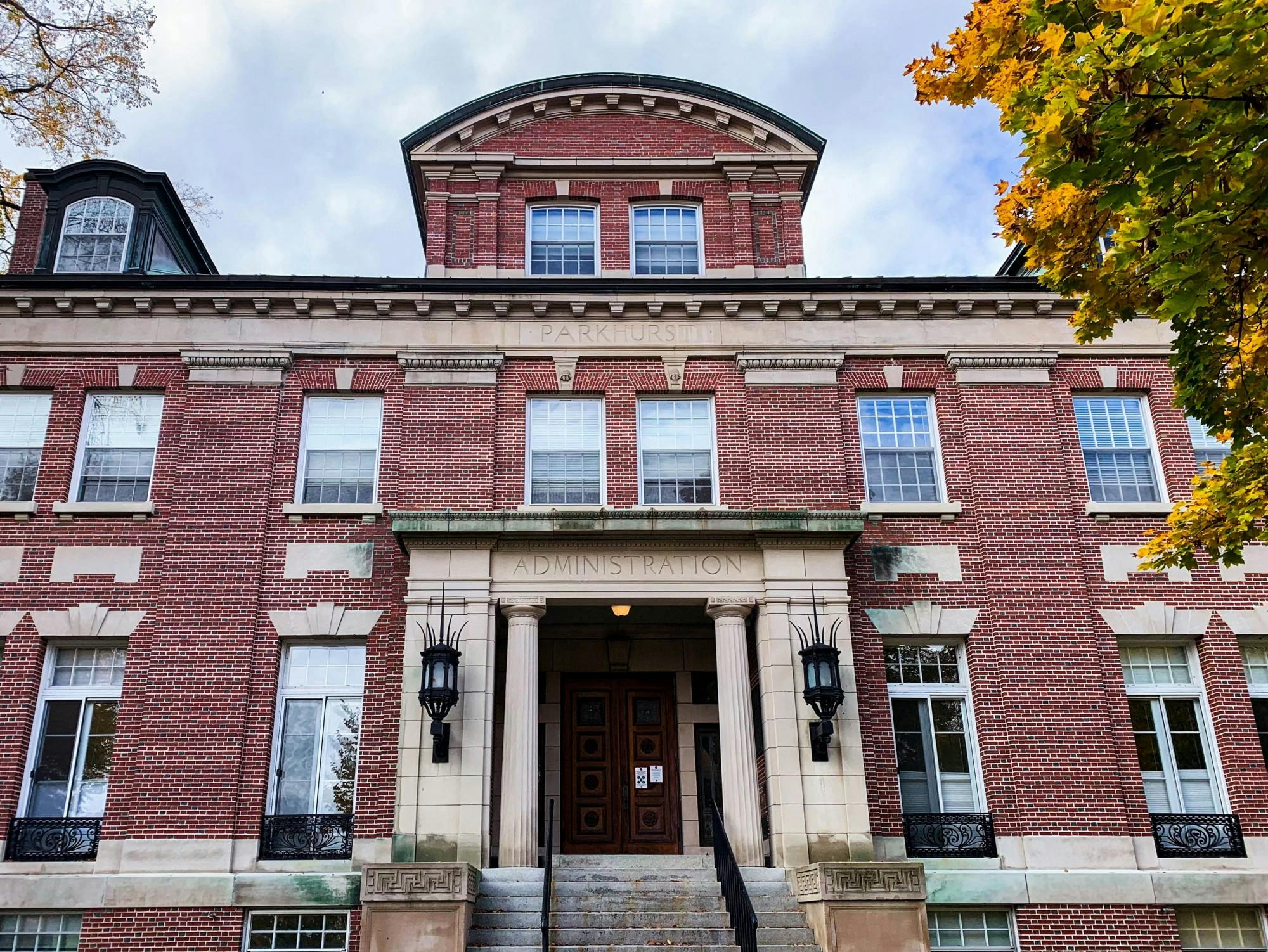On July 8, the College released a document that establishes a foundation for housing and transportation expansion, sustainability improvements, and other changes and renovations to campus over the next three decades.
In the framework, the College lays out a series of campus and regional proposals to establish six interconnected nodes and campus precincts — such as central campus, the Organic Farm, Dartmouth-Hitchcock Medical Center south of main campus, and the Thayer School of Engineering — on the six mile corridor that stretches from the Organic Farm to the DHMC. Additionally, the framework will open up the possibility for the creation of upwards of 1,500 new undergraduate housing units and 680 new graduate student, faculty and staff housing units, as well as renovations to existing dorms. Furthermore, the campus framework also details the College’s plan to preserve and adapt open green spaces on campus, to create improved bicycle and pedestrian infrastructure and to fulfill Dartmouth’s goal of being entirely powered by renewable sources by 2050.
Vice president of campus services and institutional projects Josh Keniston said that plan doesn’t “necessarily” commit Dartmouth to any specific project; instead, the plan provides a framework that looks at the “big picture.”
According to Keniston, the Board of Trustees and College President Phil Hanlon came together in 2019 to begin the process of drafting a new strategic campus plan — the last plan was adopted in 2002. Over the past few years, he added, the College gathered perspectives from over 2,500 faculty, students and Hanover residents to craft a framework that will serve as a template for future ideas for campus revitalization.
Director of campus planning Joanna Whitcomb said that the process initially included “soliciting proposals from consulting firms” and sending out surveys to various stakeholder groups.
Whitcomb also met with the planning and zoning committees and town managers of Lebanon, Hartford, Norwich, and Hanover. Hanover town manager Julia Griffin noted that community members were invited to “take a look at drawing boards of concepts and to provide input” as part of a “comprehensive community listening component” of the planning process.
Whitcomb added that she developed a monopoly game of campus during Dartmouth’s 250th anniversary,which she played with graduate students and alumni. She said this allowed players to envision the campus with new buildings. In addition, Whitcomb sought out the perspectives of undergraduate students.
“We did a big poster session soliciting feedback with sticky notes on posters in Baker-Berry library,” Whitcomb said. “We really tried to hear from the community as to what they'd like to see, as we look to the future of Dartmouth.”
According to Whitcomb, the planning process was mostly completed by March of 2020. However, as a result of the COVID-19 pandemic, the plan’s release was postponed and it was later re-examined to ensure that it had addressed “resilience and kind of the challenges that come with a pandemic,” Whitcomb said.
Recently, at a June Board of Trustees meeting, the Board of Trustees approved the next planning phase to continue to look at options for renovating current undergraduate housing.
“A big part of the work that’s happening this summer is to look at what needs to be done in various buildings and how long it will take since there are some buildings that need more work than others,” Keniston said.
Along with developing new housing, the plan seeks to improve the system of public transportation within the Upper Valley. According to Keniston, Dartmouth’s current graduate housing project occuring on Mt. Support Road near DHMC will have a shuttle service connecting it to downtown Hanover.
Hanover planning and zoning director Robert Houseman said that there may be challenges with expanding the public transit system. “Growing it beyond its current framework requires a financial commitment to acquire the buses, driving employees and staff,” he noted. He emphasized his belief that Hanover’s “community core can best be served by foot” and improved infrastructure for walking.
Griffin said that she believes more workforce housing close to campus would contribute to a more developed public transportation system.
“My hope is more student housing on campus to free up the off-campus housing, to be used as workforce housing for local workers,” Griffin said. “And the more you build up your in-town workforce housing, the easier it is to provide a robust public transportation system.”
Furthermore, the College is seeking to achieve its sustainability goals of using cleaner energy sources — such as solar power — to power campus. According to Griffin, Dartmouth has begun installing solar panels on campus rooftops and has looked “in detail” at the potential for a “very large” ground mounted solar array on College property located near Grasse Road. According to Griffin, the College is “looking very seriously” at replacing their number six fuel oil plant and reducing the College’s reliance on biomass.
Though Griffin stated that she believes it will take some time for news of the strategic master plan to “trickle up” through the community, she said the framework addresses the major concerns of Hanover residents as it relates to the future of open green space in close proximity to campus.
“It was very clear that the town hoped for some sort of a landscaped quiet zone buffer around the campus that would be preserved,” Griffin said. “What was really important to [residents] is that if the College chose to move away from a golf course towards more active use of that land for college buildings, that there would be a landscape buffer — also maintaining Pine Park, which the community loves and uses regularly.”





